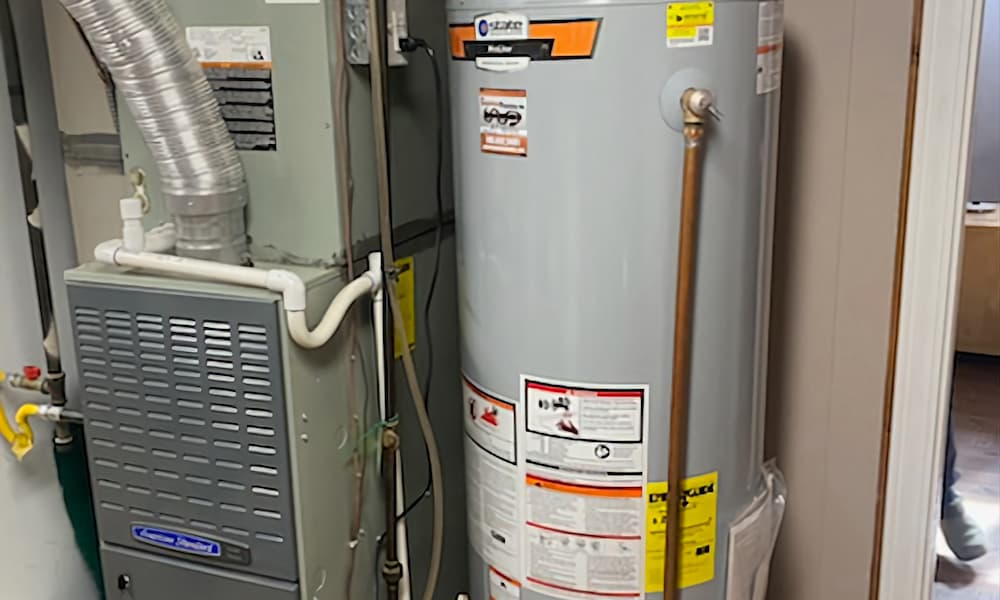Water heaters can last for years with relatively little attention and maintenance. But they don’t last forever. Over time, your water heater may build up sediment from hard water, develop electrical problems, or crack and start to leak. Knowing how long a water heater lasts and common signs that it’s time for hot water replacement can help you protect your home from water damage while ensuring you always have access to hot water. Start by finding your home’s type of water heater and see if it’s time to start thinking about a new unit.
Average Lifespan of Different Types of Water Heaters
How long do water heaters last? Different types of water heaters are built to last for different stretches of time. Do you know what type of heater you currently have?
- Conventional tank water heaters last between 10 and 15 years.
- Tankless water heater systems last between 15 and 20 years.
- Hybrid/electric models last between ten and 15 years.
These estimates can help you gauge how many more years your system might have and what kind of hot water repairs make sense. For example, repairs on a three-year-old unit can be very cost-effective. But if your tank water heater is starting to experience frequent electrical problems at 14 years old, it may make more financial sense to replace it.
However, there are some factors that can shorten your water heater’s lifespan. Hard water (and the resulting mineral buildup), high-volume usage, and high pressure and temperature can all wear out units faster. But performing preventive maintenance like flushing the tank and replacing the sacrificial anode rod can extend its lifespan and make your water heater last as long as possible.
Common Signs It’s Time to Replace Your Water Heater
Your water heater’s age can tell you a lot about whether it’s time to start saving up for a replacement. But it’s not the only indication. Look for these common signs that it’s time for hot water repair or hot water replacement:
- No hot water: This indicates that your water heater is completely failing.
- Frequently needing repairs: As units get older, they may require more frequent repairs, making it more and more expensive to keep the same unit.
- Rusty water, discolored water, or water with a harsh scent: Rust and corrosion may be present inside the tank, which can be very difficult to address and can indicate an invisible link.
- Leaks: If you see water around the tank, a seam may have failed, or your unit has developed a crack. Cracks cannot be repaired.
Benefits of Replacing an Old Water Heater
When your old water heater breaks down, replacing it with a new water heater can give you a more reliable supply of hot water. There are even more benefits to replacing your old unit. For example, you can make sure you get the right capacity for your home’s size and the expected usage in your home; if you have a 30-gallon tank, now might be a perfect opportunity to switch to a 40-gallon unit.
New units also tend to be more energy-efficient, so you can save money on your energy bills without having to take shorter or colder showers. Along with energy savings, new water heaters can save you money because they don’t need as frequent repairs early in their lifespan.
When to Call a Professional
If you’re experiencing any problems with your water heater, call in a professional plumber instead of waiting. Developing problems can quickly turn into a leaking tank or a flooded garage. When you call in a plumber, they can make recommendations, and you can shop for a new heater at a slower pace to make sure you get the right type and size for your home.
Is It Time for a New Water Heater? Call on Copperhead Plumbing
When your water heater needs constant attention or it’s nearing the end of its lifespan, Copperhead Plumbing Inc. is here to provide fast repair and replacement services. Contact us today to schedule an appointment.


0 Comments